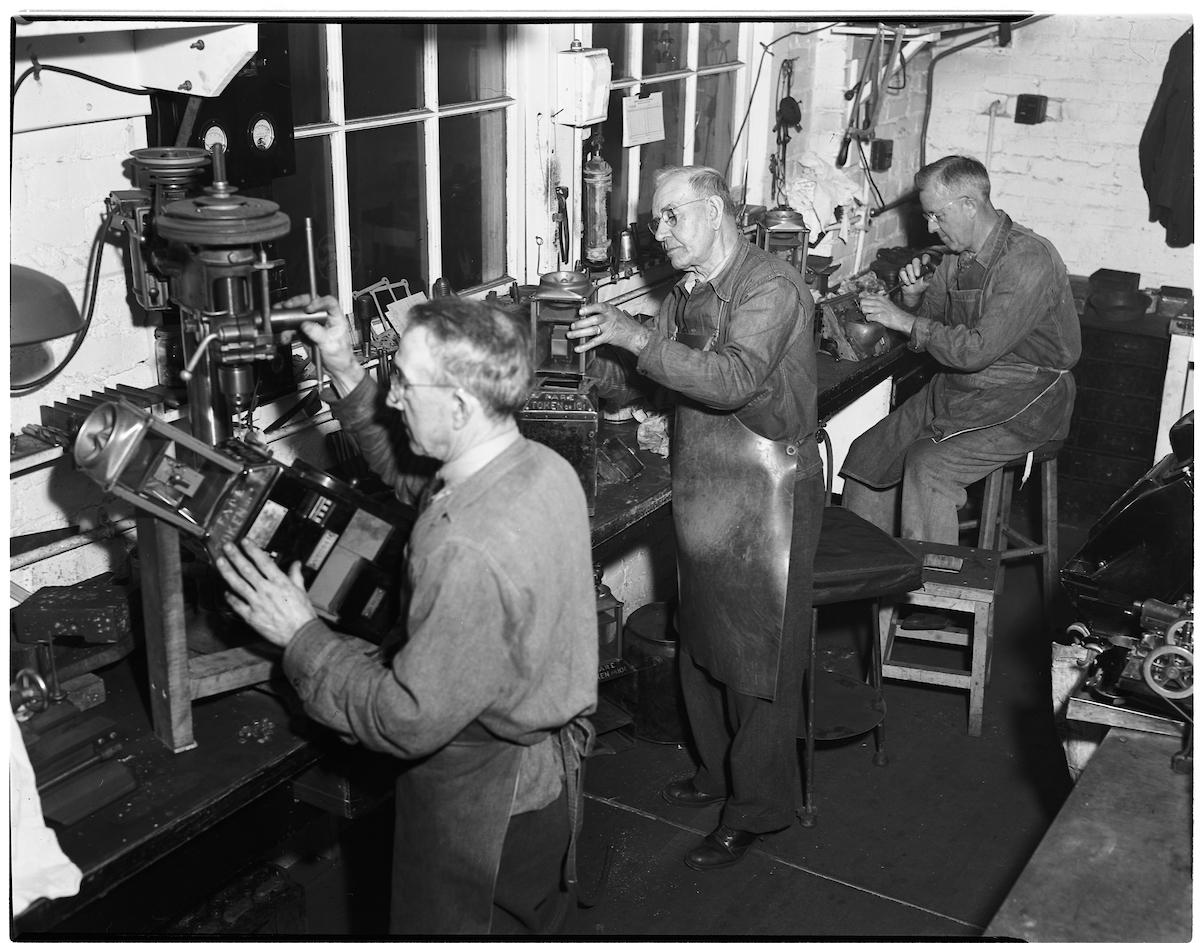
Shop mechanics repairing fare boxes at Elkton Shops | April 24, 1947
This Transit Month, we're excited to dive into the history of our payment methods here at Muni. Today, we'll go way back to the 1930s. That’s when a new approach to managing fares became necessary to keep pace with a rapidly growing city.
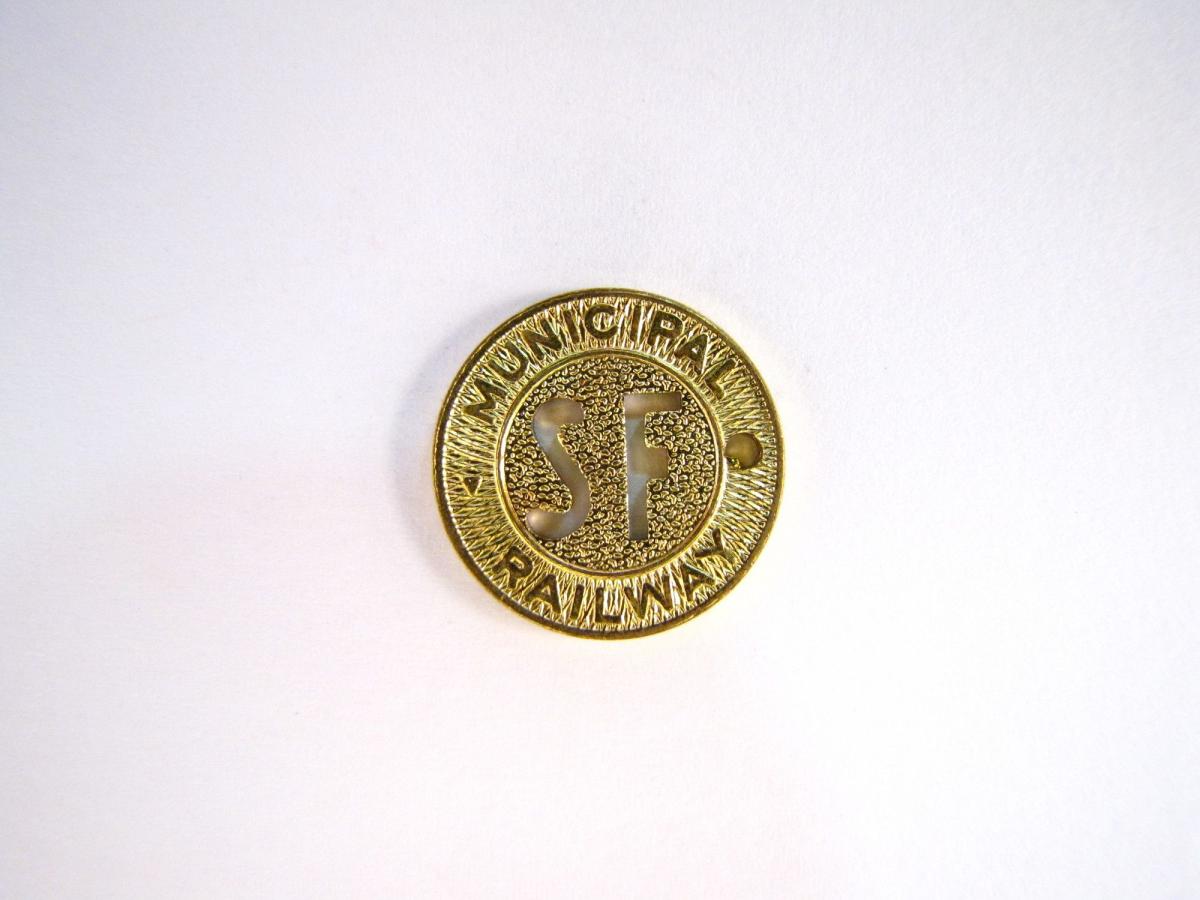
San Francisco Municipal Railway (Muni) token.
In 1937, when the Market Street Railway increased its fare from 5 cents to 7 cents, San Francisco transit riders were introduced to the token. Tokens were sold to riders in bulk at a discount rate. They offered a convenient way to adjust fare prices and avoid the need to make change.
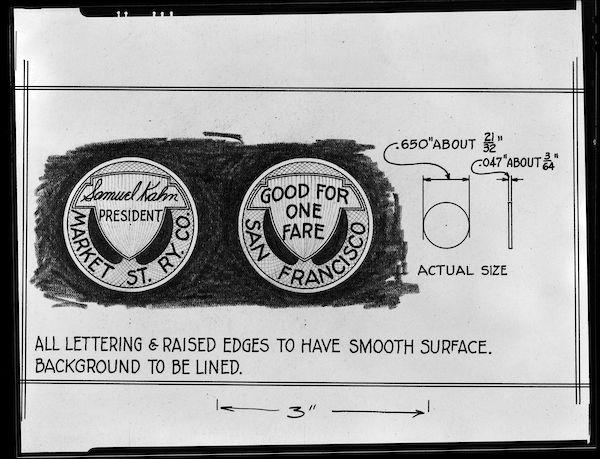
Market Street Railway (MSR) token design. One side features the signature of Samuel Kahn, president of MSR. | April 25, 1937
Following voter approval in 1944, The San Francisco Municipal Railway (Muni) acquired its commercial competitor, the Market Street Railway (MSR). The two systems merged on September 29, 1944. MSR transferred its assets, including over 400 streetcars and 200 miles of track, to Muni.
At that time, Muni increased its fare from 5 cents to 7 cents, matching the cost of MSR tokens. To offset the fare hike, Muni began providing transfers. This allowed passengers to travel across the city using multiple routes without paying more.
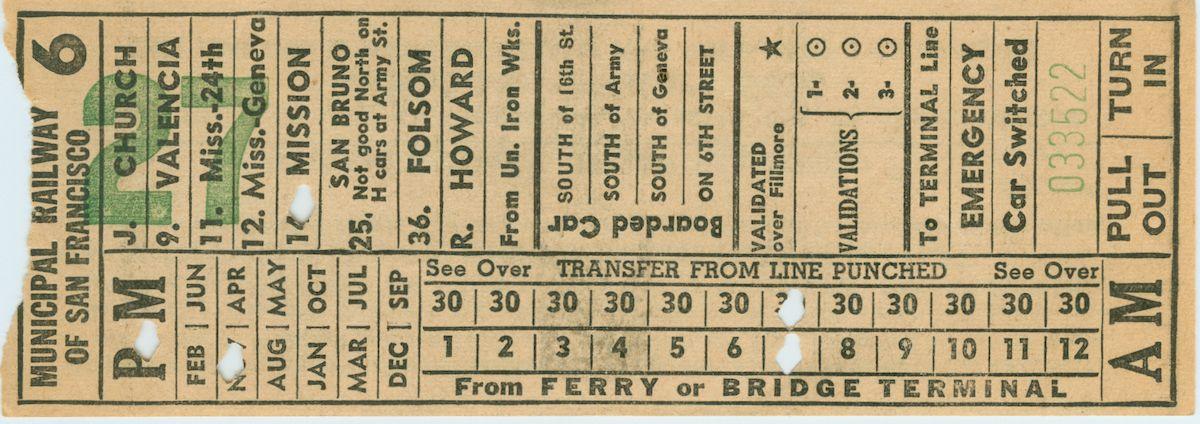
San Francisco Municipal Railway transfer | November 27, 1946
After the merger, Muni accepted MSR tokens and continued to use them during World War II. Between 1943 and 1945, temporary paper tokens were issued due to the scarcity of metal tokens and delays in manufacturing. Tokens remained in use for nearly 70 years before being phased out in 2005 with the transition to smart-card technology.
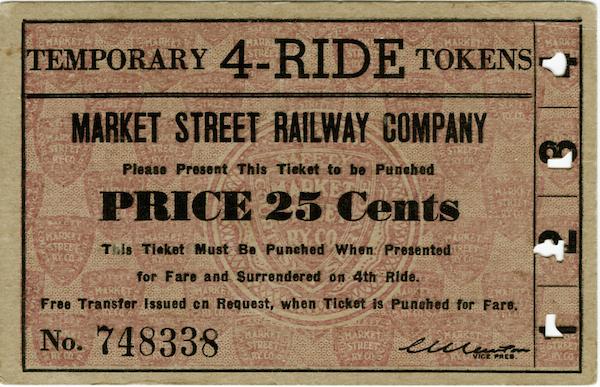
Temporary 4-ride paper token from Market Street Railway | Circa 1944
Comments are for the English version of this page.